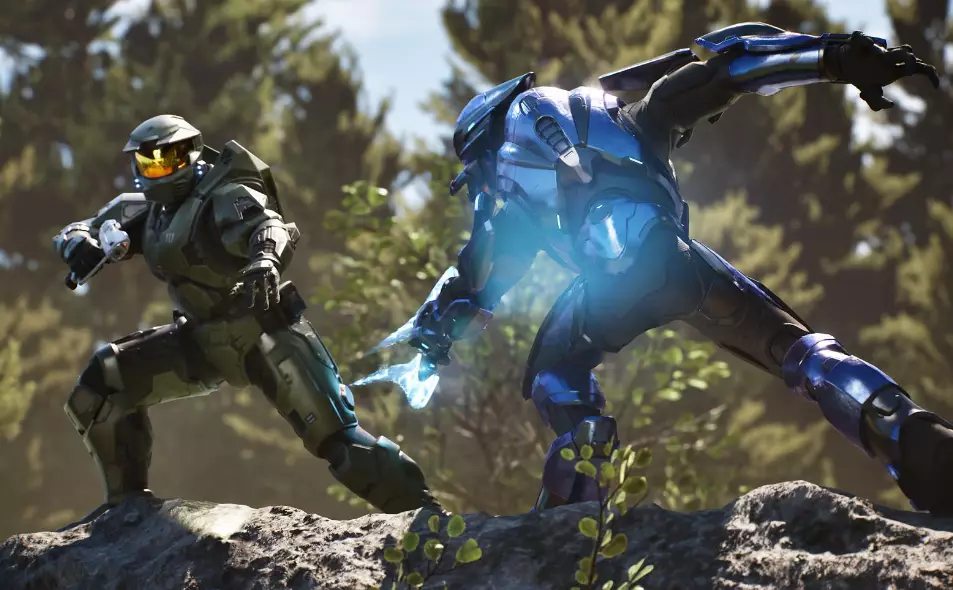The allure of adapting beloved video games into television series or films is a topic that has been debated for years in the entertainment industry. The recent release of Prime Video’s anthology series, *Secret Level*, highlights both the potential and the pitfalls of this trend. While the first season showcases a range of franchises, notable absences like *Halo* and *Doom* reveal the complexities involved in securing adaptation rights. This article delves into the challenges faced by *Secret Level*’s team and what this means for future video game adaptations.
When exploring the genesis of *Secret Level*, it becomes clear that the creative vision behind the series was met with institutional roadblocks. Supervising director Dave Wilson and creator Tim Miller shared candid insights into negotiations with Microsoft over the rights to iconic characters like Master Chief and the Doom Slayer. Interestingly, Wilson mentioned that the project was met with skepticism from development executives, who were concerned that *Secret Level* could disrupt existing partnerships. This tension exemplifies a larger issue in Hollywood: the difficulty of balancing artistic ambition with the realities of corporate interests.
Miller’s frustration with external perceptions only exacerbates this dilemma. Online discourse often simplifies the situation into a narrative of missed opportunities—suggesting that, by opting for lesser-known titles like *Spelunky*, the creators disrespected fan-favorite franchises. The truth is far more nuanced; attempts to negotiate with Microsoft were made but ultimately fell through. This suggests a disconnect between the creative aspirations of the team and the cautious nature of corporate entities.
In a revealing commentary, Wilson recounted how the *Secret Level* team dedicated considerable effort to drafting a compelling proposal to Microsoft—devoting an entire weekend to pen a heartfelt letter. However, their overtures met with rejection. This indicates a significant hurdle that many creative projects face: the unpredictable nature of negotiations. Even with established relationships with executives at Microsoft and id Software, the final decision rested not with the creatives but with corporate policy. Such realities often deflate the morale of teams looking to innovate.
Furthermore, Wilson’s recounting of these negotiations begs questions about the marketing strategies of major corporations. Why would Microsoft be hesitant to share beloved IPs like Master Chief and the Doom Slayer? This decision not only affects *Secret Level* but also illuminates a broader reluctance within the industry to embrace collaborative storytelling, which could yield unique and engaging content.
The situation regarding *Secret Level* emphasizes a troubling trend in video game adaptations: the fragmentation of rights. With various companies, like Netflix’s partnership for *Gears of War* or Peacock’s aspirations for a *Doom* series, the path to cohesive, shared universes becomes tangled. These restrictive agreements can effectively hinder creativity, leading to missed opportunities for fans to experience interconnected narratives.
Additionally, the lack of representation from major franchises on Nintendo’s portfolio further underscores the exclusivity inherent in video game adaptations. While franchises such as *God of War* and *Journey* found their way into *Secret Level*, the absence of Nintendo properties signals the necessity for broader cooperation. One potential solution could be the formation of collaborative networks where companies pool their IPs, allowing for a more comprehensive exploration of video game narratives.
The reviews for *Secret Level*’s first season reflect the dichotomy of its aspirations and execution. Critics describe the series as a mix of successes and failures, underscoring the inconsistency that often plagues adaptations. While some episodes resonated well with audiences, the overall reception highlighted a critical gap between fan expectations and the execution of these adaptations.
Looking ahead, the potential for Season 2 raises exciting questions about which video game franchises might make an appearance. However, the lessons learned from the first season—as well as the unresolved issues regarding rights and negotiations—loom large. It remains uncertain whether upcoming seasons will overcome the obstacles that marred prior projects.
*Secret Level* underscores the challenges of translating the rich narratives of video games into visual media. As the industry grapples with rights issues and corporate policies, fans are left waiting for an era where their beloved characters can seamlessly transition from screen to screen—without barriers. The case of *Secret Level* may serve as a cautionary tale and a call to action to innovate and adapt amid the complexities of modern entertainment.


Leave a Reply